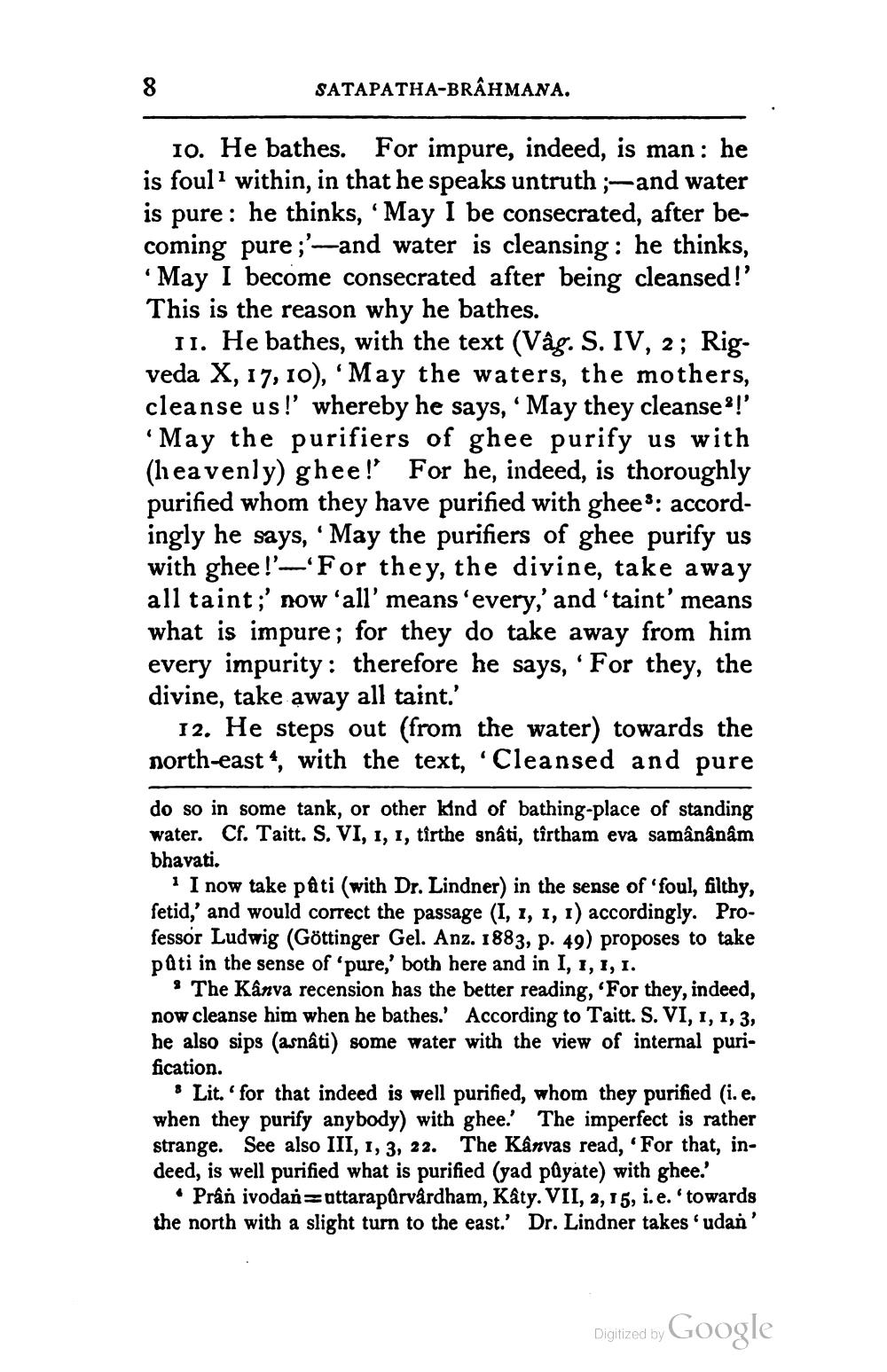________________
8
SATAPATHA-BRAHMANA.
10. He bathes. For impure, indeed, is man: he is foul1 within, in that he speaks untruth;-and water is pure he thinks, 'May I be consecrated, after becoming pure;'-and water is cleansing: he thinks, 'May I become consecrated after being cleansed!' This is the reason why he bathes.
II. He bathes, with the text (Vâg. S. IV, 2; Rigveda X, 17, 10), 'May the waters, the mothers, cleanse us!' whereby he says, 'May they cleanse'!' 'May the purifiers of ghee purify us with (heavenly) ghee!' For he, indeed, is thoroughly purified whom they have purified with ghee3: accordingly he says, 'May the purifiers of ghee purify us with ghee!'-'For they, the divine, take away all taint;' now 'all' means 'every,' and 'taint' means what is impure; for they do take away from him every impurity: therefore he says, 'For they, the divine, take away all taint.'
12. He steps out (from the water) towards the north-east, with the text, 'Cleansed and pure
do so in some tank, or other kind of bathing-place of standing water. Cf. Taitt. S. VI, 1, 1, tîrthe snâti, tîrtham eva samânânâm bhavati.
1 I now take pâti (with Dr. Lindner) in the sense of 'foul, filthy, fetid,' and would correct the passage (I, 1, 1, 1) accordingly. Professor Ludwig (Göttinger Gel. Anz. 1883, p. 49) proposes to take pûti in the sense of 'pure,' both here and in I, I, I, I.
The Kânva recension has the better reading, 'For they, indeed, now cleanse him when he bathes.' According to Taitt. S. VI, 1, 1, 3, he also sips (asnâti) some water with the view of internal purification.
Lit. 'for that indeed is well purified, whom they purified (i. e. when they purify anybody) with ghee.' The imperfect is rather strange. See also III, 1, 3, 22. The Kanvas read, 'For that, indeed, is well purified what is purified (yad pûyate) with ghee.'
• Prân ivodan uttarapûrvårdham, Kâty. VII, 2, 15, i. e. 'towards the north with a slight turn to the east.' Dr. Lindner takes 'udan'
Digitized by
Google




